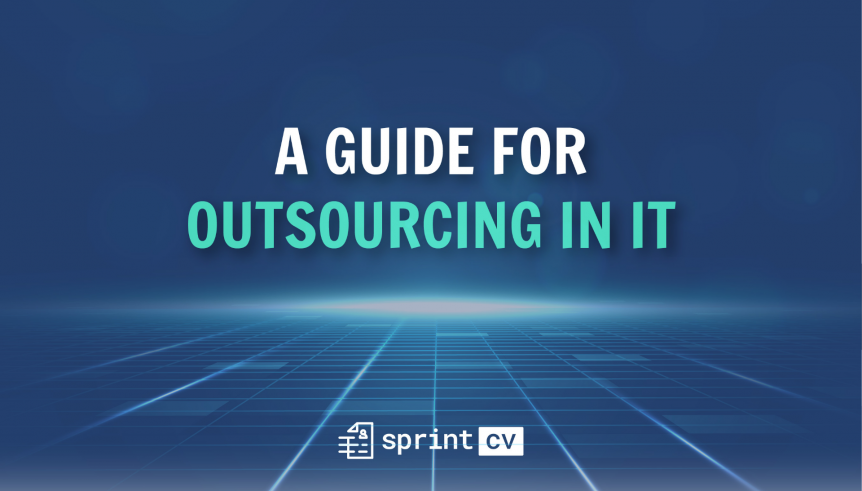
A guide for outsourcing in IT
If you are an IT manager, chances are you already choose between hiring an IT professional or outsourcing. If you keep wondering what would be the risks and the benefits of outsourcing, it’s your lucky day. We have prepared a full guide for you to navigate in the tech outsourcing world.
Outsourcing IT professionals became mainstream in the tech industry. Whether it’s because companies don’t want to do a specific job, they don’t have enough expertise, or because it’s cheaper than hiring internally. Or, even in those cases where a company has a flexible talent pool, they still prefer to hire externally when there is extra work. It’s all about managing each department’s budget. Also, companies value focusing on their core and outsourcing can provide a huge advantage on that.
Are you considering tech outsourcing professionals for your company? Then you should do a super important assessment that will determine the risks and the benefits of doing it.
Assessing the risks
- Dependency: hiring outsourcing professionals means you are dependent on them. For example, economic and/or technical dependence with high costs of transition. This happens in cases where the IT supplier charges high prices for change requests.
- Less security: There can be the risks of a data breach, not being fully GDPR compliant, and the leak of information. This can happen in cases where there is access to sensitive information, including personal information. For example, outsourced elements usually have fewer security checks, less internal training, and also less liability than internal employees. Sometimes it leads to copying confidential data to USB sticks and access to personal data.
- Loss of competencies and internal knowledge: when all the know-how and knowledge about specific software or code remains on a third-party. For example, when a company outsources the full department of analytics, and this team is seen as a service/black box, but all the knowledge remains on them.
- Reputational risks: the work produced is the direct responsibility of your company and can affect your reputation. It happens very often that development professionals have 3 months contract. Then, when the app goes live has poor performance, it damages the reputation of the company towards its clients.
- Business continuity: in case of failure to deliver, especially when there it’s full outsourcing. For example, when a third party is the host service of an app – if it goes done and there is no backup provider, the company’s service is compromised.
Assessing the benefits
- Focus on your core: nowadays it’s more and more common for companies to focus on a market niche and/or core activity to thrive. Outsourcing is an excellent alternative to understand the best practices of an industry without having to go through that learning curve internally.
- Learn from the best: is by hiring externally that companies will have access to professionals that are so specialized that will bring the best practices inside.
- Faster and more flexible help: Especially in big companies, hiring someone takes time. Outsourcing increases the ability to quickly respond to a need or to overcome the constraints deriving from atypical working hours.
- Stay within the budget: Big companies face cost reductions very often. The only way their managers can keep reaching goals is by hiring external people. This means increasing the variable costs (OPEX) and keeping the fixed costs low (CAPEX).
- Less liability: In Europe, when a company hires someone permanently, it’s quite hard to dismiss that person in the future, if needed. Plus, they also have more responsibilities than smaller companies. Having outsourced help means less responsibility and bureaucracy.
- Cost-effective: outsourcing services are often delivered at a more cost-effective ratio.
We believe assessments are essential before making any decisions. From our experience, businesses can benefit a lot from outsourcing but should also be aware of its pros and cons. For 2021, due to the COVID19 pandemic, we foresee outsourcing to grow even more, as it acts as a buffer to expand and reduce teams.
What is your perspective on this? Do you want to contribute with more risks and benefits?
Feel free to reach out to our SprintCV founder on Linkedin or via Email.